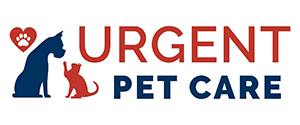- Do you subscribe to Dharma Dog Training’s Newsletter? You should.
- A Unique Campaign from The Humane Society of the United States
- Rabid bats in Omaha- Stay safe, prepared with these tips
- Springtime Activities in Omaha
- Mill Dog Monthly from Bailing Out Benji
- World Spay Day, Legislative Alert in Nebraska
- Attend the Nebraska Rescue Council’s monthly meeting this Saturday
- Five Hard-to-Ignore Reasons to Adopt!
- Paws in Pink to Benefit Breast Cancer Foundation
- VCA, Inc. Acquires MidWest Vet Specialists from Kansas State University
Please don’t be THAT person when visiting the Animal Hospital

We are again grateful to veterinarian Dr. Christopher Byers from Omaha’s Critical Care as he’s allowed us to share some of his great information and advice with our readers. In this post, explore a little “vet clinic etiquette” and try not to be that person…
Recently while organizing a lecture in an airport, a fellow traveler surmised my profession by sneaking a glimpse at the Microsoft Powerpoint slides on which I was working. She was clearly intrigued and began asking a lot of questions about my job and veterinary medicine in general.
One question struck me: Do pet owners ever do anything that frustrates you?
I love my job. I love partnering with pet parents. I love helping them help their fur babies. So how does one even begin to tactfully answer this question? The truth is yes, some pet parents have idiosyncrasies I find both intriguing and taxing at times. In the spirit of full disclosure, I’ll share some of them with you. Happy reading (I hope…)!
Etiquette Point #1: Be present
If your pet requires veterinary medical attention, you should be the one to bring him/her to the hospital. Your own parent, sibling, dog walker, or housekeeper should not be the one who brings your fur baby to the animal clinic for evaluation. Frustrating communication issues inevitably arise when a friend unfamiliar with your pet’s medical history presents your fur baby for an illness. You, the one who knows your pet best, should be the one to accompany your pet to the animal hospital.
Would you send your sick son or daughter to the pediatrician with a baby sitter? Of course not! The same should be true of your pet. The person who knows your pet best – in other words, you – should be the one who brings your pet to hospital for evaluation. Besides, remember your pet would much prefer to be with you too!
Etiquette Point #2: Be punctual
Arriving late to a consultation with a veterinarian is exasperating. Have you ever been to a veterinary hospital for an appointment only to have to wait several minutes beyond your scheduled time? For the vast majority of those instances, you can thank another pet parent for your visit not running on time. Another family’s tardiness can easily and completely throw a veterinarian’s schedule into relative chaos. I guarantee the entire medical team is working diligently to get back on track. As veterinarians, we really don’t like to make people wait unnecessarily. A pet parent arriving on time for a consultation is a very important step in ensuring his/her fur baby receives timely veterinary medical care.
Etiquette Point #3: Be nice
There is no doubt a trip to the veterinary hospital with a sick pet is stressful. Yet, for reasons that boggle the mind, that stress occasionally turns people into insufferable beings. Fear and anxiety are powerful emotions, and many folks simply don’t know how to cope with them. As a result, these people often are verbally (and occasionally physically) abusive, abrasive, and behave with a seething sense of entitlement. I guarantee this is not helpful. Not. At. All.
Your pet’s medical team has one goal: to provide your pet the best possible veterinary medical care. These teams work tirelessly to make your pet feel better, to keep you informed every step of the way, and to maximize the likelihood of your pet making a complete recovery. Antagonizing team members through unjustifiable cussing, ridiculous posturing and/or verbal (and physical) threats does nothing to help your pet’s healthcare team achieve its central goal.
Etiquette Point #4: Be off the grid
One of the more bothersome habits of some pet parents is their willingness to answer their mobile phones in the middle of consultations. Cellular signals rarely interfere with medical equipment, but this is the universal reason given because it’s relatively difficult to tactfully tell folks, “You’re being rude and making my ability to help your pet more difficult!”
Answering your mobile phone in the exam room in simply discourteous. A veterinarian can’t obtain a complete patient history if you’re on the phone. Taking a call in the middle of a veterinarian’s explanation of a complicated disease process is entirely distracting, and prevents pet parents from actually internalizing anything the veterinarian is saying to them. Please remember a consultation with a veterinarian is not of unlimited length. If a pet parent elects to use his/her allocated time on the phone instead of with the veterinarian, certainly that is her/her choice. Yet I would argue it’s not in the best interest of the sick pet, and time would be more wisely spent communicating and partnering with the veterinarian about his/her plan for making your pet well again!
The take-away message about etiquette in the hospital…
Effective communication in the exam room is absolutely essential for maximizing the likelihood of a positive outcome from a pet’s illness. As veterinarians, we have a responsibility to speak openly with pet parents, explaining for understanding, and empowering families with information. Pet parents should be prepared to partner with veterinarians, actively listening to diagnostic and therapeutic recommendations without distractions.
To find a board-certified veterinary internal medicine specialist, please visit the American College of Veterinary Internal Medicine.
To find a board-certified veterinary emergency and critical care specialist, please visit the American College of Veterinary Emergency and Critical Care.
Thanks again to Dr. Byers for this insight. Please, for his and every other veterinarian’s sake, don’t stray from these simple suggestions! For more vet stories and advice, visit our Veterinarians page by clicking here.
Related Posts
Latest News
-
3 Tips for Pet Owners on Training Rescue Dogs
Owning a rescue dog can take some work compared to...
- Posted 3 weeks ago
- 0
-
Choosing the Right Pet for Your Lifestyle
Are you thinking about getting a pet but unsure what...
- Posted 1 month ago
- 0
-
How to Make Your Rescue Pet as Comfortable as Possible
Did you bring home a new pet from a shelter...
- Posted 2 months ago
- 0
-
How Having A Pet Can Change Your Life
Having a pet can open your heart in ways that...
- Posted 7 months ago
- 0
-
How To Improve The Life Of Your Senior Pet
Do you have an elderly fur baby and want to...
- Posted 7 months ago
- 0
-
Springtime Activities To Enjoy With Your Furry Friends
Are you preparing for warmer weather and want some ideas...
- Posted 8 months ago
- 0
-
Pros And Cons Of Microchipping Your Pets
Have you considered whether your pets should be microchipped and...
- Posted 9 months ago
- 0























You must be logged in to post a comment Login